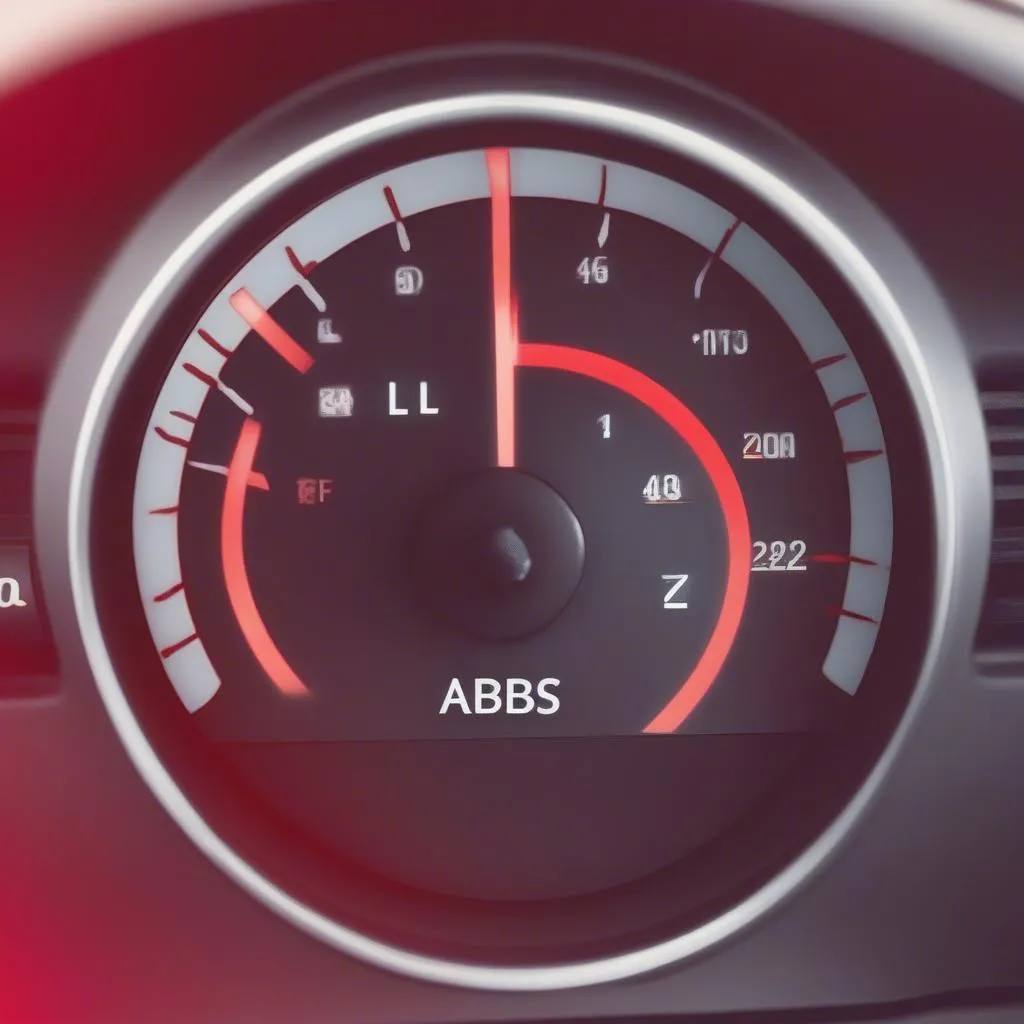Ever driven down a slippery road and felt your car start to skid? Maybe you’ve even seen the dreaded “ABS” light illuminate on your dashboard. But what exactly does ABS mean, and why is it so important for your safety? Let’s dive into the world of anti-lock braking systems and understand why they’re essential for every driver.
Understanding the Meaning of ABS
What is ABS and Why is It Important?
ABS stands for Anti-lock Braking System. It’s a safety feature that prevents your wheels from locking up during sudden braking. Think of it like a guardian angel for your car, especially on slick surfaces like wet roads, snow, or ice.
How Does ABS Work?
The Science Behind the System
Imagine you’re driving down a wet road, and you need to slam on your brakes. Without ABS, your wheels would likely lock up, causing your car to skid uncontrollably. But with ABS, here’s what happens:
- Sensors Detect Wheel Speed: Special sensors on your car’s wheels constantly monitor their speed.
- ABS Module Takes Control: When the ABS system detects a wheel starting to lock up, a control module takes over.
- Pumping the Brakes: The ABS module rapidly pumps the brakes, releasing and applying pressure to prevent the wheels from completely locking.
- Maintaining Control: This rapid pumping action allows your wheels to maintain some grip, giving you control over the car’s direction while braking.
The Benefits of ABS
Enhancing Safety for Every Driver
ABS has revolutionized automotive safety, offering several benefits for drivers:
- Reduced Skidding: ABS helps maintain control of the vehicle during sudden braking, significantly reducing the risk of skidding.
- Shorter Stopping Distances: In most cases, ABS can actually help your car stop faster because it prevents your wheels from locking up.
- Improved Steering Control: Even during emergency braking, ABS allows you to steer effectively, giving you better control of the car’s direction.
- Protection from Wheel Damage: ABS protects your tires and brake rotors from damage that can occur during wheel lock-up.
Frequently Asked Questions About ABS
Addressing Your Common Concerns
Here are some common questions about ABS that many drivers have:
Q: What does the ABS light mean?
A: When the ABS light illuminates, it means there’s a problem with the ABS system. It’s crucial to have it checked by a qualified mechanic to ensure your safety on the road.
Q: Should I brake differently when ABS is engaged?
A: ABS is designed to automatically take control of your brakes during sudden braking. The best approach is to brake normally and let the ABS system do its job.
Q: Does ABS work on all surfaces?
A: ABS is most effective on slippery surfaces like wet roads, snow, or ice, where wheels are most likely to lock up. However, it can also be helpful on dry surfaces for sudden braking situations.
Q: Is ABS a mandatory safety feature in my country?
A: In many countries, ABS is now a mandatory safety feature for new vehicles. However, it’s essential to check your specific country’s regulations.
Understanding the Importance of ABS
A Powerful Tool for Safe Driving
Think of ABS as your trusted co-pilot in any driving situation. It’s a safety feature that can significantly reduce the risk of accidents by giving you more control during sudden braking events. The next time you see the “ABS” light on your car’s dashboard, remember its importance and have it inspected by a mechanic to ensure it’s functioning correctly.
 car-abs-light
car-abs-light
Learn More About Car Safety
Explore Other Topics on Diag XCar
Looking for more information on car safety? Here are some other articles that might be helpful:
- Why does my car tremble when I stop?
- What is an ABS light meaning?
- What are the best diagnostic scan tools for European cars?
Need Expert Help?
Get in Touch for 24/7 Support
If you’re experiencing any issues with your car’s braking system or have questions about ABS, our team of expert auto technicians is available 24/7 to assist you. Get in touch via Whatsapp at +84767531508 for immediate support and guidance.
Stay safe and drive responsibly!


